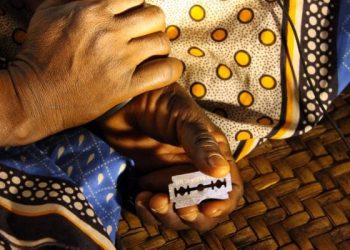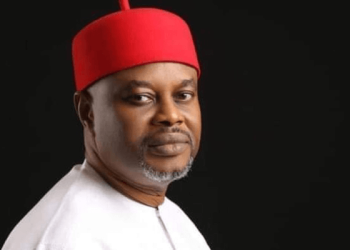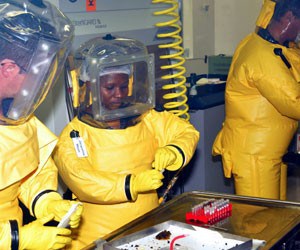As 2016 approaches, Nigeria’s economic outlook appears gloomy. The naira dipped further from N274 to one United States dollar on Christmas Eve to exchange for N280 to $1 at the parallel market to cap 12 months of a downward slide, but firmed up a little later. With oil prices also in free fall and investors fleeing the capital market, the fiscal and monetary authorities will need to come up with radical, workable ideas to steer the economy through the coming storm.
The gloom is palpable. Pressure on the naira, which exchanged at N155 to a dollar in November 2015, had been mounting for years, primarily because the country is import-dependent with a weak export base where crude oil and gas shipments account for an overwhelming percentage of exports, while becoming a net importer of food and other basic necessities. For instance, in the first quarter of 2014, crude oil accounted for 81 per cent of the N3.96 trillion worth of exports, an improvement over the 88 per cent contribution of crude to total exports of N3.45 trillion in the corresponding period of 2013, according to data from SME Connect, a First Bank publication. Conversely, the Central Bank of Nigeria is forced to moderate the foreign exchange market by selling dollars to importers, drawing down weekly on foreign reserves to bring goods that we ought not to be importing. Such distortion, said the report, saw N192 billion spent to import Premium Motor Spirit in Q1 2014, N54.2 billion on spirits and wheat, N27.5 billion on raw cane sugar, N19.5 billion on milk and cream, N18.4 billion on bitumen and N8.1 billion on palm oil.
Just before he was forced out as the CBN Governor early last year, Lamido Sanusi lamented how defending the naira was depleting foreign reserves. With oil prices plunging from $101 per barrel mid-2014 to $34 per barrel last week, reserves at $30.4 billion by end of November, just enough, says the International Monetary Fund, to finance about five months of imports. Analysts say that maintaining a stable exchange rate by such naira defence comes at a high cost. These include high lending rates, a wide gap between official exchange rates and parallel markets and inflation. With a 60 per cent drop in government revenues, the CBN has been fighting a daunting rearguard action to avoid a calamitous devaluation.
So far, its efforts have failed to stem the flood. The CBN’s guided devaluation since November 2014, has been followed by restrictions on the sale of forex by Deposit Money Banks and Bureaux de Change to importers of certain items deemed non-essential, freezing of domiciliary accounts, caps on withdrawals on IT platforms and, lately, a ban on the use of naira-designated debit cards abroad. The Lagos Chamber of Commerce and Industry describes these forex restriction measures as “the costliest policies in recent years,” claiming that private businesses have lost N1.46 trillion in the last six months. Worst hit, LCCI said, are fast moving consumer goods, furniture, steel, pharmaceuticals and manufacturing, which are faced with shortage of raw materials.
There is not going to be a quick fix for the troubled naira. The CBN Governor, Godwin Emefiele, will need to think outside the box and consider other options. A school of thought argues forcefully that sharing of dollar revenues in naira to the three tiers of government at CBN-determined conversion rates will always result in weakening the naira and in inflation through flooding the economy with excess liquidity. A review of this CBN’s deleterious policy is long overdue. There should be tighter control of the BDCs, which by the CBN’s admission and revelations from ongoing corruption cases, are major conduits for money laundering and forex round tripping. The regulator should stand firm on the forex ban on non-essentials such as tooth picks, candles, and matches. The Federal Government should impose prohibitive tariffs on luxury items such as high end cars, furniture, clothing and accessories as well as imported packaged food.
The folly of importing refined petroleum products is evident in the lion’s share of resources spent on this and the reality that the bulk of bank lending goes to fuel importers at the expense of the real sector where the short term nature of transactions also helps keep lending rates high. Argentina’s new president, Mauricio Macri, moving quickly to repair the battered economy he inherited, eased restrictions on the peso, allowing it to float to restore investor confidence. Lacking a robust export base, outright devaluation as suggested by some, may be counter-productive in Nigeria. The Buhari government should take advantage of the current low global crude oil prices to reform local petroleum product prices, starting with the Petroleum Products Pricing Regulatory Agency’s dubious and fraud-infested template.
The government should match import restrictions with stimulus plans to boost the non-oil export sector, which has been rising, though not significantly enough, despite the depredations of the previous administrations. Re-basing the economy last year revealed the rising importance of telecoms to 8.7 per cent of Gross Domestic Product, services sector rising from 26 per cent to 51 per cent, manufacturing from 3.9 per cent to 6.7 per cent and entertainment to 1.2 per cent. Renaissance Capital analysts suggest strong measures to raise productivity in the productive sector – agriculture, mining and manufacturing – to wean the economy away from its dependence on oil.
Achieving a healthier balance of trade through effective export trading zones, better operating environment by solving the energy crises, business-friendly regulation and promoting start-ups and micro, small and medium scale enterprises will help reduce pressure on the naira and allow the CBN’s policies to have the desired impact. Innovation, a key requirement for producing competitive goods, should be promoted by the state and the Federal Government partnering the private sector.
Revving up the war on corruption will significantly aid the measures to prop the naira and diversify the economy.













































